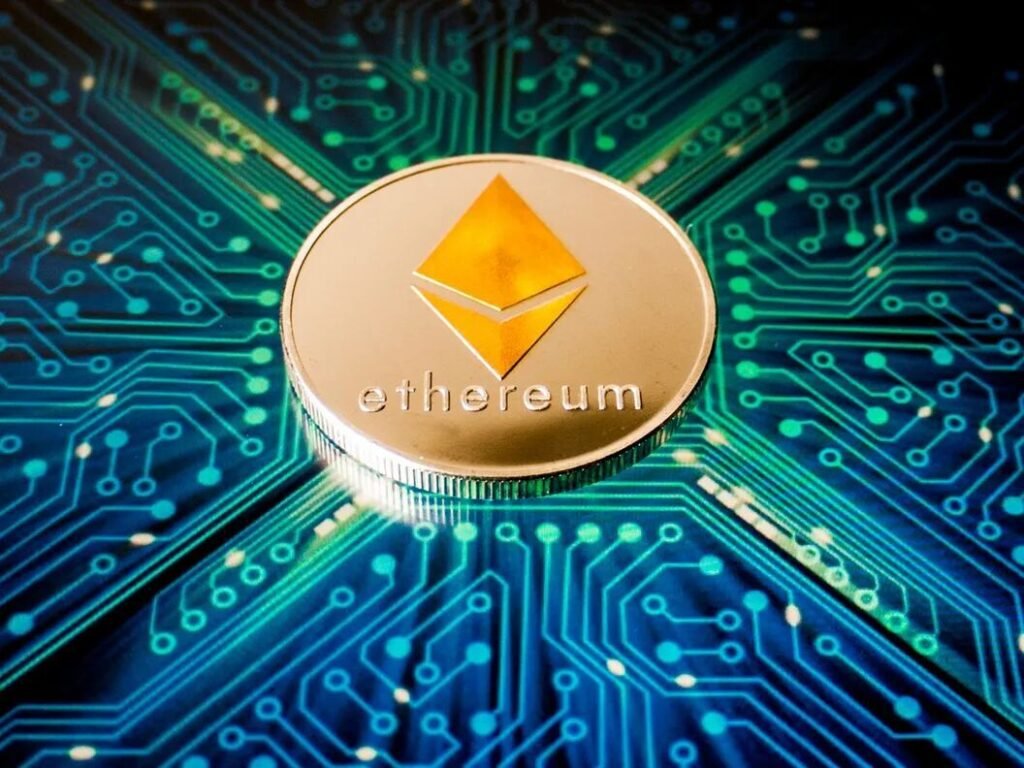In the picturesque and serene backdrop of St. Moritz, Switzerland, the cryptocurrency landscape witnessed a whirlwind of developments. The recent approval of a Bitcoin Exchange-Traded Fund (ETF) triggered a notable surge in Ether prices, igniting hopes for a parallel approval for an Ethereum ETF. However, the euphoria was short-lived as U.S. Securities and Exchange Chair Gary Gensler swiftly injected a dose of caution, signaling that the path to an Ether ETF might not mirror the relatively straightforward journey of its Bitcoin counterpart.
Bitcoin ETF Approval Sparks Ether Optimism
Following the green light for the Bitcoin ETF, the market witnessed a surge in Ether prices, reaching their highest point since May 2022. Investors were quick to bet on the possibility of a similar approval for an Ether ETF, anticipating that the U.S. Securities and Exchange Commission (SEC) might follow suit.
Investor optimism extended to the anticipation of upcoming decisions on spot Ether ETF applications, slated to commence in May. Major financial players, including BlackRock, Invesco, Ark, VanEck, and Grayscale, are among the firms awaiting regulatory approval, adding to the growing excitement within the cryptocurrency community.
However, the buoyant atmosphere took a downturn as SEC Chair Gary Gensler issued a word of caution, emphasizing that the approval of a Bitcoin ETF should not be misconstrued as an indication of the SEC’s readiness to approve listing standards for crypto asset securities.
SEC’s Longstanding Skepticism Toward Cryptocurrencies: Gensler’s post-approval statement reiterated the SEC’s historical skepticism toward cryptocurrencies, labeling Bitcoin as “speculative” and potentially prone to “illicit” purposes. This reaffirmed the SEC’s position as a cautious regulatory body, committed to scrutinizing and evaluating the risks associated with emerging financial technologies.
The contrasting classification of Bitcoin as a “non-security commodity” raised questions about the classification of Ethereum. Gensler clarified that, in the SEC’s viewpoint, the majority of crypto assets are considered investment contracts and, therefore, are subject to federal securities laws.
The Cryptocurrency Classification Quandary
The ongoing debate in the United States regarding the classification of cryptocurrencies as either securities or commodities took center stage in Gensler’s comments. While Bitcoin successfully secured its ETF approval under the label of a “non-security commodity,” the status of Ethereum remains a point of contention and uncertainty.
Gensler’s emphasis on the majority of crypto assets being viewed as investment contracts complicates matters for an Ether ETF. This nuanced classification could potentially create obstacles in the approval process, making it a more intricate and uncertain endeavor compared to the relatively straightforward approval of a Bitcoin ETF.
Outlook and Speculation on Ether ETF Approval: As the cryptocurrency community eagerly awaits the SEC’s decisions on Ether ETF applications, speculation abounds regarding the likelihood of approval in 2024. The opinions within the crypto sphere are divergent, adding a layer of intrigue to the unfolding narrative.
Some industry insiders, such as Antoni Trenchev, co-founder of cryptocurrency exchange Nexo, express confidence that an Ether ETF could materialize this year. Trenchev suggests closely monitoring the SEC’s actions rather than its statements, drawing parallels to the initial skepticism surrounding the prospect of a Bitcoin ETF, which eventually materialized.
What Is Ethereum?
Bill Tai, chairperson of Aktai, introduces a note of caution, highlighting the complexity surrounding the classification of Ethereum. Unlike Bitcoin, which has been definitively categorized as a commodity, Ethereum’s status remains ambiguous, with questions lingering about whether it should be considered a security or a commodity. Tai suggests that until this classification ambiguity is resolved, structuring an ETF around Ethereum will not be as straightforward as it was for Bitcoin.
Christopher Giancarlo, co-founder of the digital dollar project and former chair of the U.S. Commodity Futures Trading Commission, brings historical context to the discussion. Drawing parallels to the introduction of Bitcoin futures in 2017, Giancarlo suggests that the approval of one financial product often opens the doors for others. Reflecting on his regulatory experience, he expresses that he would be “shocked” if there weren’t a growing demand for an Ether ETF, hinting at the potential evolution of the regulatory landscape.
However, skepticism looms on the horizon. Anthony Scaramucci, founder of SkyBridge Capital, acknowledges the potential challenges posed by Gensler’s position at the SEC. While expressing the belief that Ether is here to stay, Scaramucci suggests that the SEC, under Gensler’s leadership, may be less likely to approve an Ether ETF in the short term. He advises patience, acknowledging that despite potential hurdles, Ether’s permanence in the crypto space is undeniable.
Conclusion
As the cryptocurrency community navigates the uncertainties surrounding the approval of an Ether ETF, the regulatory landscape remains dynamic and unpredictable. The contrasting views of industry experts, regulatory caution, and the unresolved classification dilemma surrounding Ethereum contribute to an intricate and evolving narrative.
While the recent surge in Ether prices reflects the market’s optimistic outlook, the cautionary statements from SEC Chair Gary Gensler serve as a reminder that the path to regulatory approval is seldom straightforward. As May approaches and the SEC begins its deliberations on spot Ether ETF applications, the crypto community is poised on the edge of anticipation, waiting to witness the next chapter in the evolving saga of cryptocurrency ETFs.
Source: CNBC

